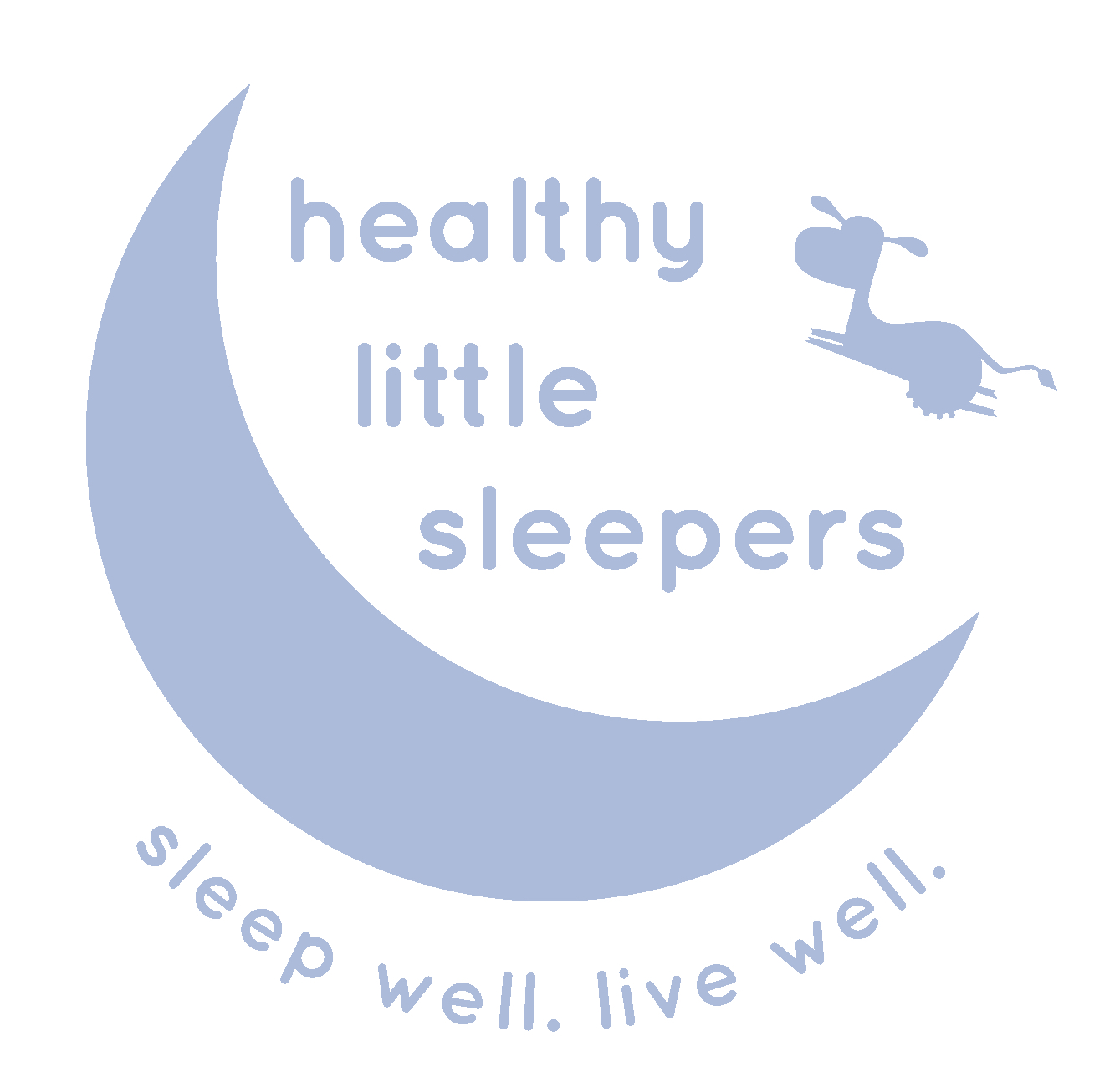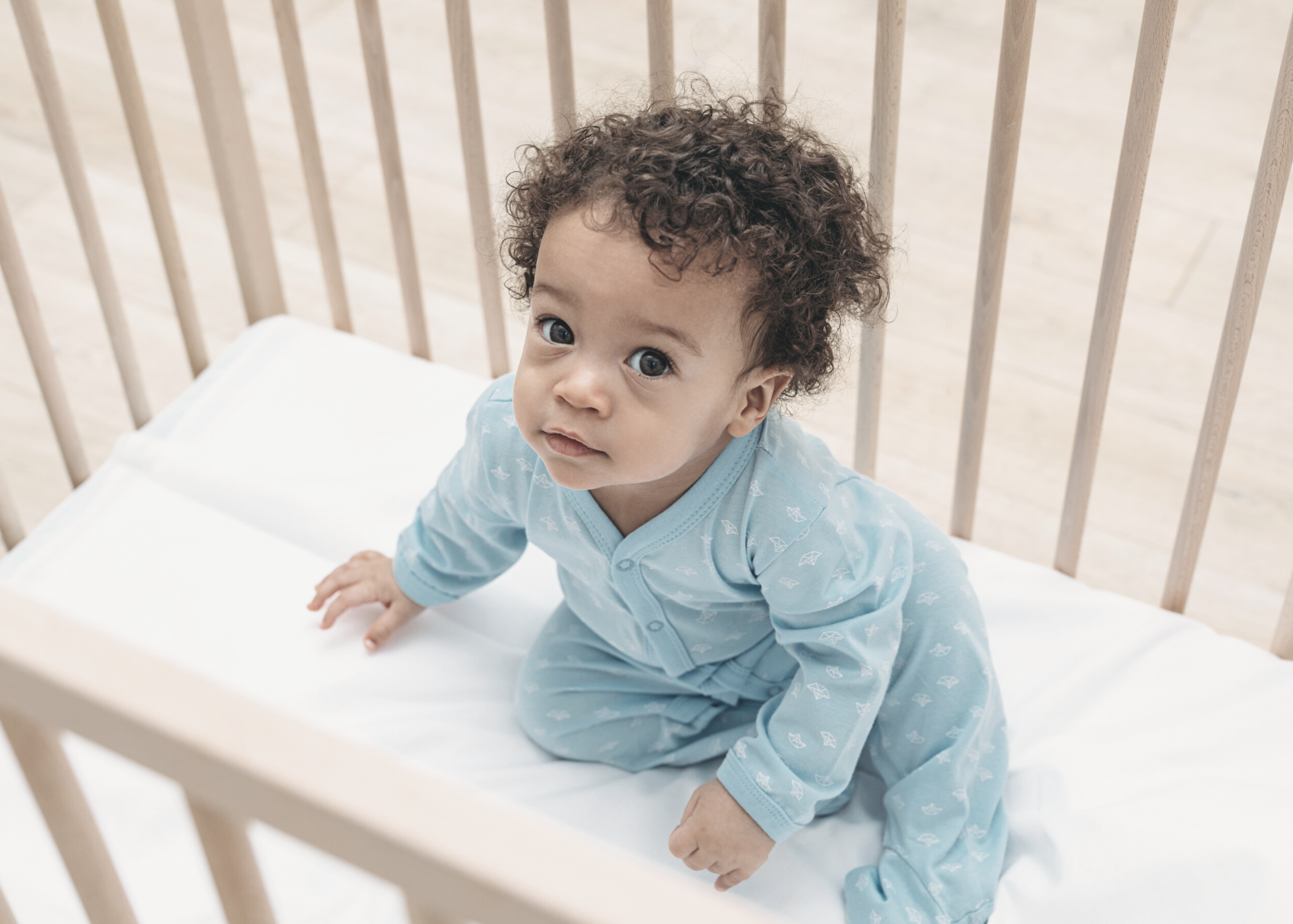Baby Sleep Challenges to Expect at Every Age
When I first had my son (my oldest, Tyler), I had no clue what I was in for – and I didn’t like that feeling! So when I tell you I went out and bought dozens of parenting books, I am not exaggerating. I also spent hours surfing the internet trying to find out as much as I could. I wanted to be prepared, especially when it came to my son’s sleep (okay, and mine too 😉).
The thing is… with the internet and everything else (including advice from loved ones), it can get pretty contradictory! One book would say, you can sleep train at 3 months old, while another book would say 4 months. I was so lost. And on top of that, I felt like every time I got things underway with sleep, Tyler would hit a new milestone and his sleep would be thrown off again! Back to square one.
But that's when I realized with my background in applied developmental psychology, I could figure this out. I looked at development, the research on sleep, and how it matched (or not) with what books and other articles were saying. (And BTW, I got my little one to sleep through the night and get all his naps in by 4 months!)
I don’t want this blog post to be another thing you read that leaves you totally confused (because maybe what I’m sharing is different from something you’ve already read or heard). But I do want you to feel prepared, empowered, and confident that you’ll be able to handle any and every sleep challenge your baby encounters as they grow up.
* * *
Sleep challenges to expect at every age
0 - 3 months
Ahh, yes, the newborn phase! At this age, your little one hasn’t yet developed their circadian rhythms (aka sleep rhythms), plus, they’re eating every 2-3 hours, so that means baby will be up every couple hours. You’ll probably be really tired during this phase, but you can start setting healthy sleep habits now, which will help you and baby prepare for future sleep challenges.
You’ll often hear me talk about the newborn stage like a roller coaster. One day you feel like you completely have things down and you’ve turned a corner, until the next day sleep turns upside down again. There are many reasons for this (too long for one post - but it’s exactly what I teach everyone), but I can tell you the two main reasons are no circadian rhythms (like I just mentioned) and your newborn is not born with the ability to produce melatonin yet (our powerful sleep hormone). BUT… there are things we can do to help these come together quick-er and that’s all about knowing what’s going on developmentally for your newborn and supporting them based on where they are).
4 - 6 months
Your little one goes through so many big milestones in this short period of time: clearer vision, seeing in color, circadian rhythms developed, better motor skills, babbling, rolling, sitting… to name a few. They’re super exciting, but they can also disrupt baby’s sleep. You should also get ready for the dreaded four-month sleep regression - aka all those developmental changes that are happening. The good news is your baby is starting to develop their circadian rhythms, so they’re learning that dark = sleep, and light = play, so baby’s sleep environment is super important at this age. You can also start sleep training at this age too!
7 - 11 months
During these months your baby will begin to crawl, clap, laugh, point, maybe start teething (if they didn’t already), potentially start feeling separation anxiety, and transition from three naps to two. With all of these changes, your little one’s sleep can get really thrown off – especially those naps. A bedtime routine and developmentally appropriate sleep practices are really important at this age.
12 - 18 months
At this age, you might notice your little one going from napping to not napping to waking up early in the morning (we’re talking like 4/5am here, yikes!). This age range is full of little sleep hurdles and lots of development. Because your baby is now moving into the toddler stage, it’s important to connect, understand, and also set loving boundaries around your little one’s sleep.
19 - 24 months
Your little toddler is going to want some independence at this age! But that might not mean wanting to sleep independently (especially if they’ve developed separation anxiety). At this age, your little one will start to feel more complex emotions, learn lots of new words (“no” will be a favorite), and strengthen their memory for details and routines. Setting loving boundaries, maintaining emotional connection, and believing in your little one will go a long long way!
To be honest, your baby or toddler may not face any of these sleep challenges – or they might have to deal with all of them. There is no one “right” way to help your baby sleep or to sleep train because there isn’t a one-size-fits-all approach; every little one is unique!
So if your little was a great sleeper but not so much any more, or they’ve never been, Healthy Little Sleepers can help you get over those sleep hurdles!
Healthy Little Sleeper’s Personal Blueprint: Age-Specific Video Courses to Get Your Baby Sleeping Through the Night
You’ll get:
Age-specific videos that are setup like a “digital in-home consult”
The 5 Essentials to Healthy Sleep
Sleep training guides that help you maintain connection with your little
A plan for dealing with those What do I do!? moments
Age-specific downloads to get you through the milestones and challenges
Access to our private community – live Q&As every week, discussions around sleep and non-sleep related topics, AND support from like-minded families
Join our Healthy Little Village now and help your little one get the sleep they need! Find the right Personal Blueprint course for your little here.


